#152
On getting used to the city
While we have more or less unpacked most of the boxes during almost a month in Edinburgh, there is still a lot to go, but the logistics of the process take its toll, so we are slowing down until there are more cabinets, shelves, and tables to fill in.
It means there is more time for exploring the city, whether it's clumbing up the volcano overlooking the castle, or sipping on the new menu at one of our favourite bars:
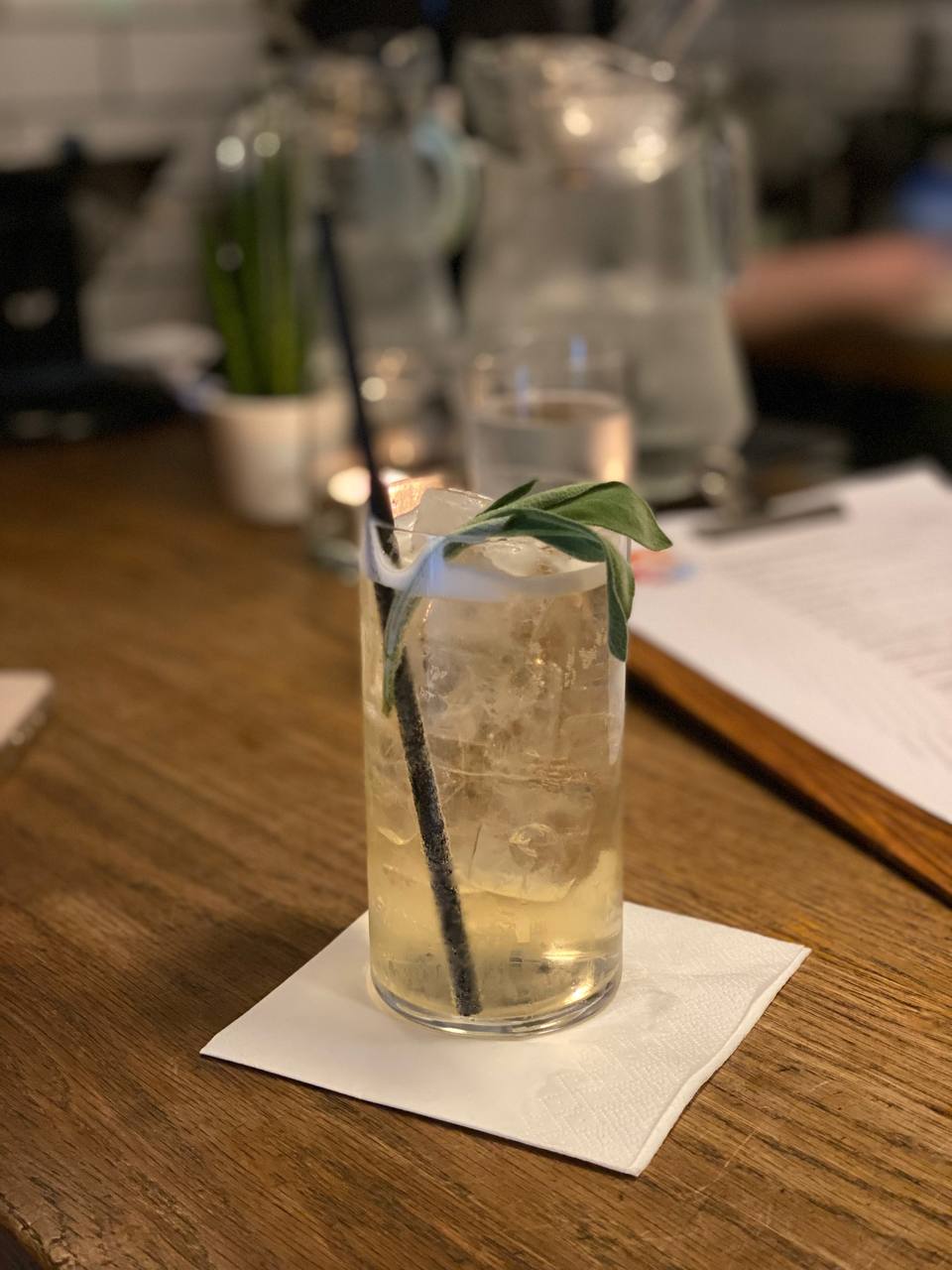
We've also paid an imprompty visit to Six by Nico, which is a chain of restaurants in the UK I've mentioned quite a few times before. While it seems like I has grown from their cooking, it's still nice to visit the place that paves the way to affordable fine dining for many people around, even if at the cost of certain repetitiveness between menus.
These head and tail croquettes were a highlight: nice contrast of textures, subtle notes of pepper and wild garlic in sauces, slight crunch from mooli and mushroom slices.
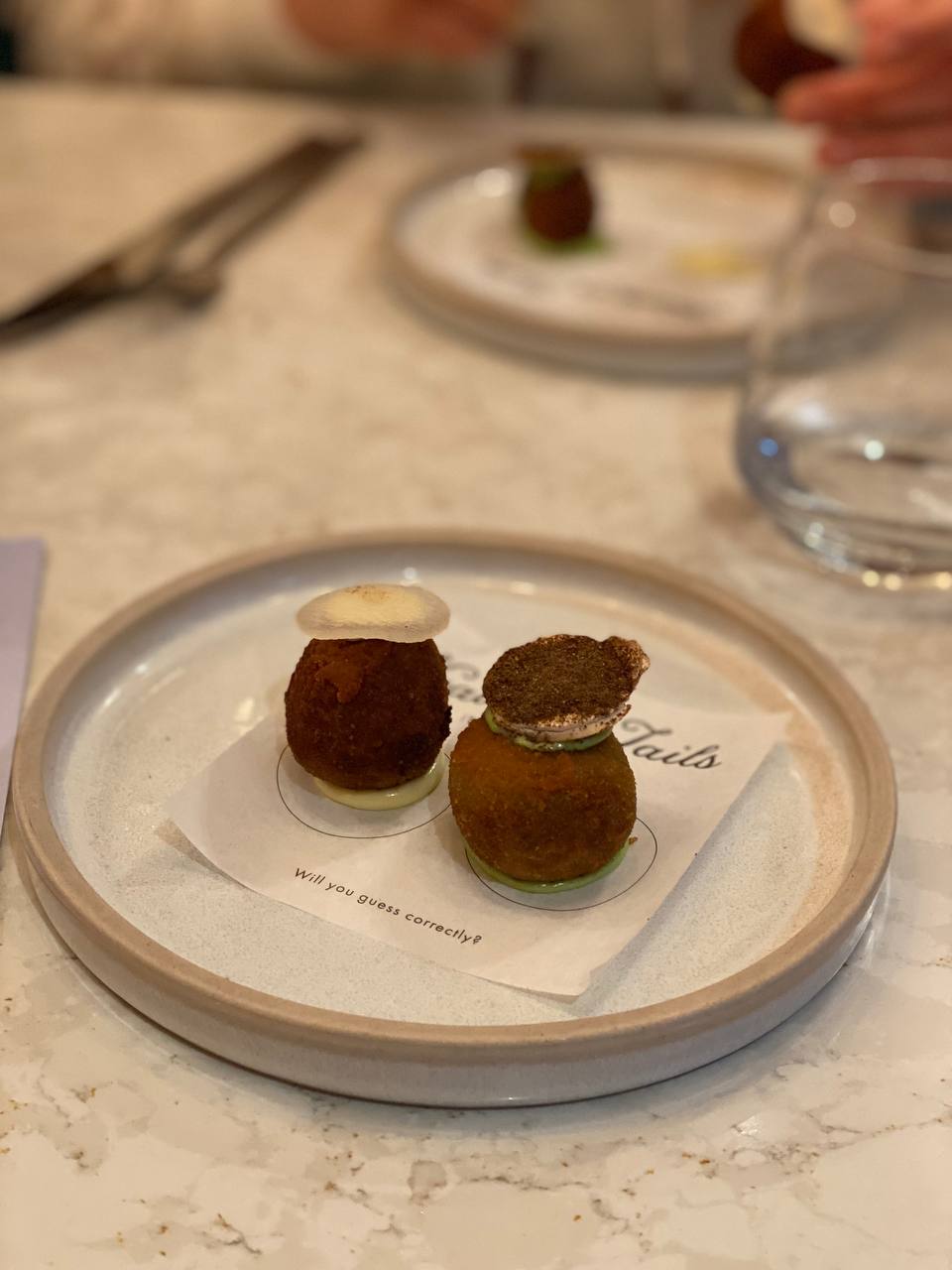
This apple-shaped pate was the big disappointment: it's a very simplified replica of the famous Heston Blumenthal's Meat Fruit, and while the flavour is alright, the presentation is far away: the colour is too artificial, the glaze is not even, and the wild fennel is lost between sharp flavours of the rest of the plate.
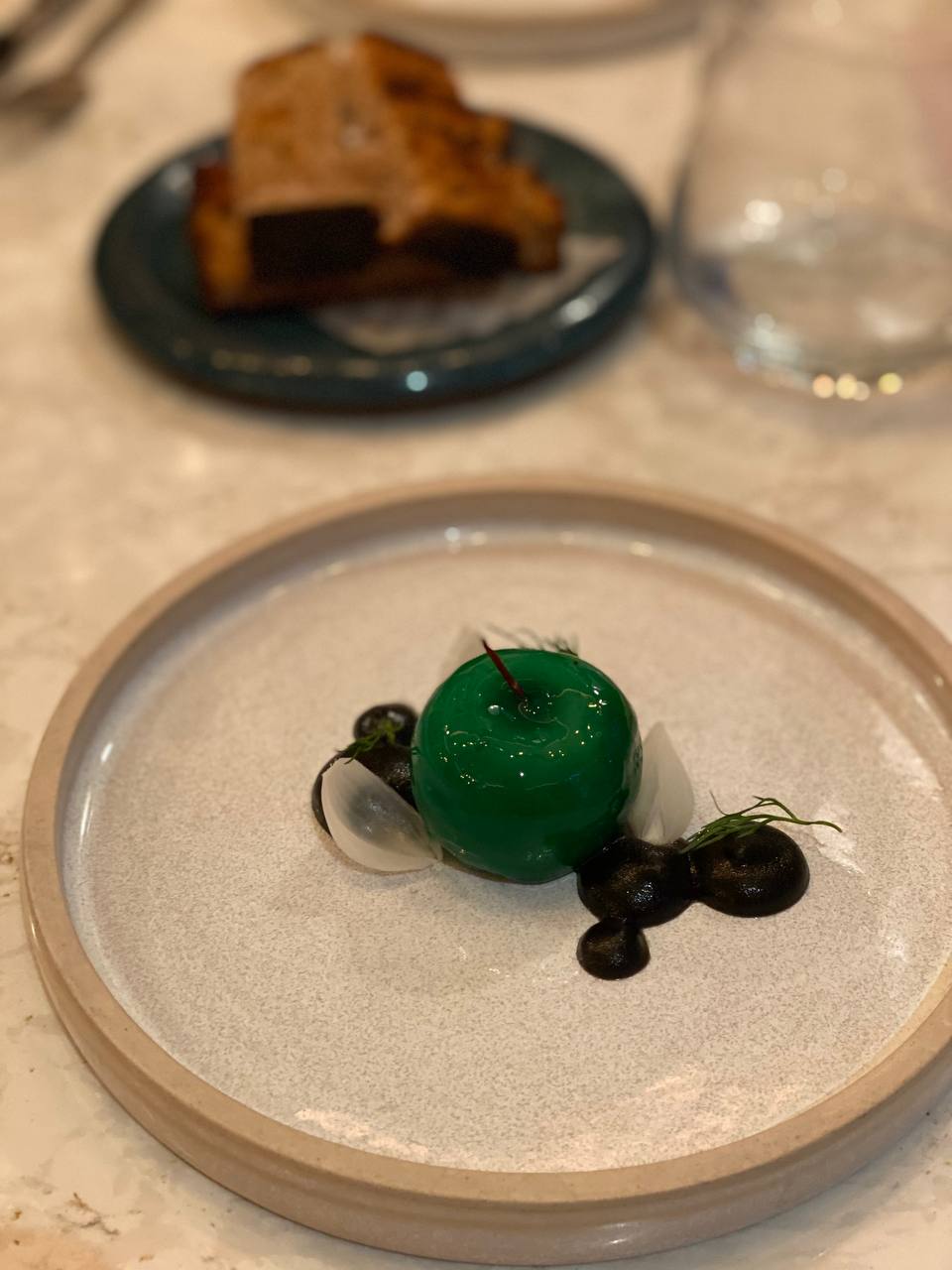
Back home I am playing with a new toy: a combi oven capable of injecting steam alongside the normal mode, which improves the heat transfer a lot.
One of the first recipes I made were the baguettes:
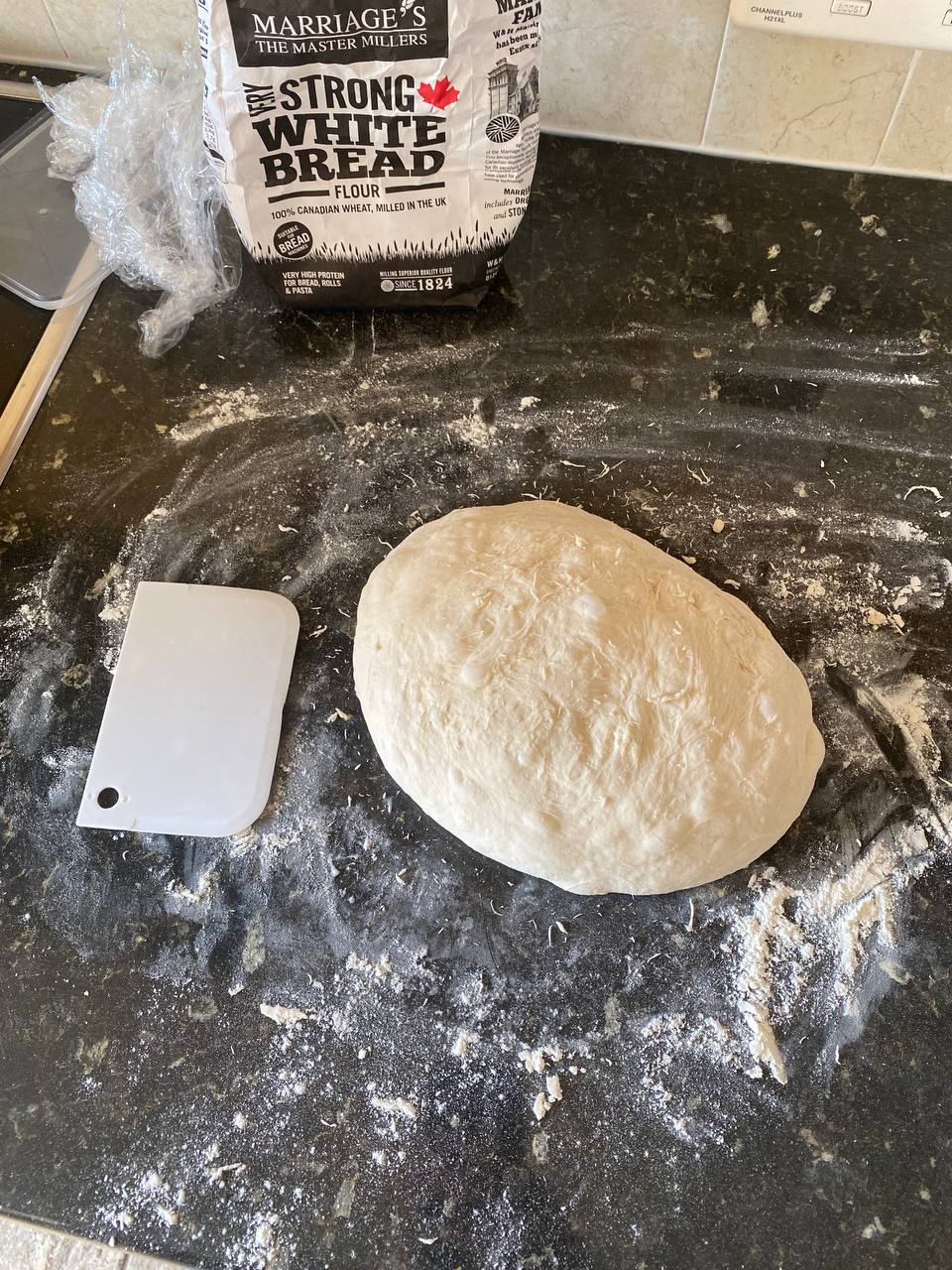
There is a lot to learn here, but as you can see my shaping skills are subpar:

Here is the oven with steam at 100% to amplify the crust.

I didn't manage to get a clean cut during scoring but made up in crunch by rapidly chilling the baked bread in a vacuum chamber. Given a baguette at ~70ºC, a single 40 seconds cycle in the chamber dropped the temperature by ~20ºC, while maintaining the crust and locking-in the moisture.
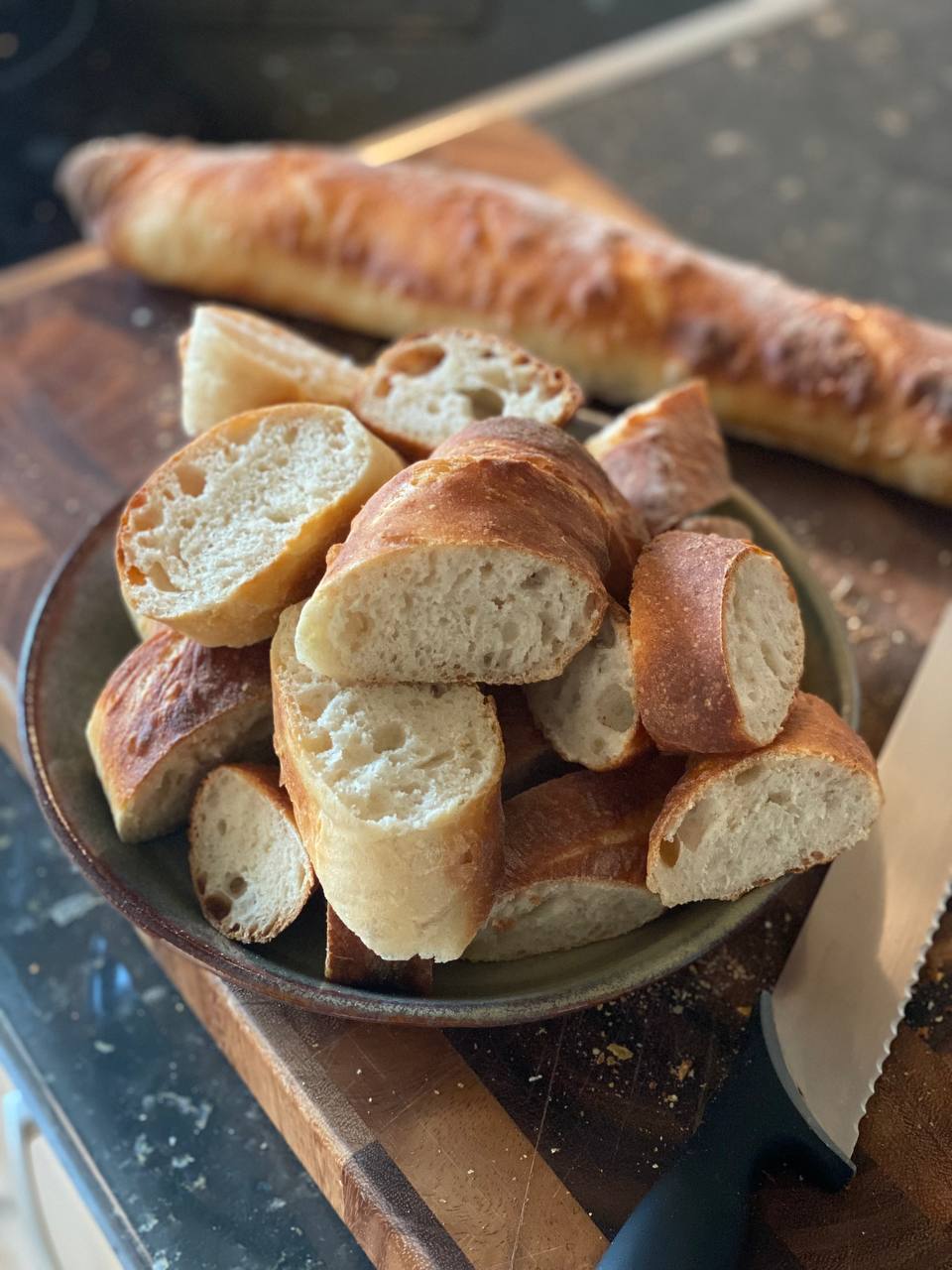
Next time I will get a proper baguette tray to make sure the colour is even on all sides, but all in all I am quite happy with the results.
Enjoying this? Get Tuesday Triage in your inbox every week.
Things I enjoyed reading
1. Is eating out a luxury again? by Tim Hayward
This is not the first alarming post on the future of restaurants, but coming from a restaurant-owner it sounds even sadder than usual:
From the age of five to around the age of 16, I went to a restaurant roughly once a year. It was always the same place — a Berni Inn. We always ate the same prawn cocktail, steak and chips, Black Forest gateau. Today, nearly half a century on, aside from my day job, I might eat out more than once a week. I expect lunch to be bought and eaten on the go. I expect drinks after work. And if I’m too tired to cook I expect to be able to pick up a phone and have dinner brought to me by a kid with a moped, an insulated bag and a look of haunted desperation for less than the effort and cost of making it myself. I am, of course, aware of the immense privilege implicit in those statements, but it’s a total reversal of norms that I sometimes find quite difficult to get my head around.
This is also the reason why I tend to leave tips, even though here in the UK it's not really enforced and most restaurants either mark them as optional in the reciept or leave out completely. Eating out in restaurants is indeed a luxury, and the tips are an income tax of a kind.
2. A Developer's View of Vision Pro by @_Davidsmith
It's been a week since the announcement of the new "spatial computer" from Apple, and while most people either laught at its price and shape, or marvel at the entertainment possibilities it might unlock, there is also a different – developer's – perspective.
That shift is fundamental. The interface for Vision Pro felt like it was reading my thoughts rather than responding to my inputs. Its infinite, pixel perfect canvas also felt inherently different. I wasn’t constrained by my physical setup, instead my setup was whatever I thought would be most productive for me.
My approach to building for a new platform is simple: I don't buy a device, whether it's an iPhone or an Apple TV, until I build enough apps for that said platform to make it up in revenue, so I am not yet setting the cash aside, but the simulator is already up and running.
3. Students are increasingly refusing to go to school by Adrianna Rodriguez
I didn't know that not going to school was an option in my childhood, and that's probably for the best: the only lessons I was consistently skipping were 2 hours of biology every Wednesday morning during my last year at school: I had more important things to do (that is, bench-pressing two plates at a nearby gym).
School avoidance also tends to be a gradual process – starting with missing a day or two, then missing a week until the student becomes school avoidant altogether. The longer a student is away from school, the harder it is to get them back into school, and it can affect other aspects of their life, like relationships and work opportunities, Dalton said.
Seems like the pandemic took its toll in a yet another way here, but I do remember the occasional anxiety I had thinking about going to school in the morning: it just I never considered to skip it given possible consequences.
4. Where have all the hackers gone? by @PabloTyped
And as we speak about school years, I occasionally miss how different the Internet was back then (do people actually still capitalise the word?). Even though many countries had access to it for decade, it still felt like I was exploring it among the first, and was constantly learning. Today, the mindset of many people around seems quite different indeed:
Today, we're afraid to do anything that's not JavaScript, Java, Python, or Ruby. I have a feeling 10 years from now it'll just be JS. We all read that excellent McKinley article about "innovation tokens" and we decided to be floor-avoiders instead of ceiling-breakers. Engineering leaders lead from a place of fear and risk-aversion instead of optimism and believing in their team. Where have all the ~cowboys~ hackers gone?
Thank you for coming to my ~TED talk~ rant.
5. Japan's Missing People: On the Trail of the Johatsu by @JosephHincks
This reminds me of a different article I link some time ago on criminals helping people to simulate one's death and start a new life in a different place. In case of Japan it seems different though: people just quietly disappear.
In such a culture—where quitting a company is considered shameful—disappearing is an attractive alternative, says Jake Adelstein, a veteran Japan-based journalist: “Faced with a choice of suicide, working to death, or simply vanishing and starting life over, vanishing would seem a better option,” he tells TIME, “Better missing than dead.”
I wonder how modern technologies affect the concept: these days it's possible to find a person based on the way they structure sentences, so surely we're not far from a digital DNA of sorts. The search algorithms will definitely follow.
6. A Novel the CIA Spent a Fortune to Supress by @joel_whitney
This is an interesting story about Guatemalan version of the 1984 book.
Mr. President is decidedly hard to translate, as it relies on poetic alliterations and onomatopoeia, devices learned from surrealism’s inventors and other avant-garde movements. But it also relies on Asturias’s very keen ear to the street, his love of myth and Indigenous culture, and Unger proves to be a masterful transformer. Much of the translation is truly of another time, rendering not just Central American Spanish but also Guatemalan neighborhood-, class-, and period-specific slang.
Penguin Classics seems to have it on Amazon so I might as well give it a try: it'd be sad to miss the first English translation in more than half a century.
7. Why the US can't have nice things by Chris Arnade
I didn't see much of the States during my brief visit eight years ago, but do remember a few things that stood out, and while homelesness on the streets of San Francisco doesn't seem to get any better, I wonder why the author is so sceptical about the overal level of society regulation:
Turkey is an example of a low-regulation high-trust society (compared to the US), that because of less concern about new things being destroyed, is building plenty of nice new things, while also continuing to allow the bottom-up organic growth that’s defined it for so long.
The result is Istanbul is flourishing, both in material and non-material ways.
That being said, I haven't been to Istanbul yet so can't even compare.
8. Attention, Hollywood: De-Aging Isn’t Working, So Please Stop Using It by @byClaytonDavis
The title is probably a bit harsh: I think Hollywood movies are also a great place to trial modern technologies and make them more approachable by crowds, but I do agree that de-aging doesn't yet work as exected.
It can be argued there is such a thing as being “too old to be de-aged.” For example, despite the fact that it nabbed an Oscar nomination for best visual effects, one of the main criticisms of Martin Scorsese’s 2019 gangster flick “The Irishman” is that, despite the valiant effort to make its three main leads — DeNiro, Al Pacino and Joe Pesci — look decades younger, when the actors are playing those characters in that specific period, they still maneuver as people in their senior years. Such physical limitations imposed by the technology can restrict the actor’s range of facial expressions and body language, mostly due to the extensive digital manipulation that must take place.
This is a problem we could solve next though: one step at a time.
9. Polar Night by brr.fyi
I've been north of the Arctic Circle quite a few times but don't remember seeing the true night. The author's photos give at least a small glimpse at how it feels like.
On May 12, 2023 at 10:24am NZ time, the sun officially passed 18 degrees below the horizon. This marked the end of Astronomical Twilight, and the beginning of the true night. We won’t see any light from the sun until August 3.
But that doesn’t mean it’s dark all the time! We still have regular lunar cycles.
I also didn't see the northern lights yet, but these days it'd probably be easier to go to Iceland instead.
10. In Nordic Countries, Pine Foods Have Evergreen Appeal by Kirstin Fawcett
Living in (almost) countryside is really nice, and one of the benefits is foraging being way easier than in Central London. Sasha picked some spruce shoots recently and pickled them with ättika, Nordic vinegar for pickling, but there are also more creative ways to use pine or spruce.
Maaemo, a three-Michelin star restaurant in Oslo, has served patrons langoustine roasted in pine butter, glazed with a gel of spruce shoots. Guests at Geranium in Copenhagen have dined on grilled quail with thyme seeds, cabbage sprouts, and pickled pine. Until it closed in December 2022, Oaxen Krog & Slip lured customers to a rural island in the Stockholm archipelago with warm pine-bark cheese and smoked lard with pine-sprout puree, cucumber, and dried rye bread. And at Noma, gourmands sampled pinecone-on-the-cob, fudge made from pine vinegar and Douglas fir needles, and reindeer heart grilled atop a bed of fresh pine.
I also made ice cream with pine needles last year, and it was delicious: probably we need more shoots to prepare a few pints for the coming months.
Did you know I make apps?

Notch
I got tired of guessing if I'm improving. Now AI measures my shot groups and tracks conditions so I actually know.
Take a look →Things I didn't know last Tuesday
1. Trottole
I could probably create a separate newsletter and weekly post a new pasta shape I learnt about, but instead I constraint myself and try to do it as rare as possible.
A type of pasta in a shape supposed to resemble spinning tops.

This one looks really cool though. I wonder if there is a trick to quickly rolling it by hand as all videos I could find rely on a dedicated extruder.
2. Dos apellidos
I didn't know that in some countries people keep both parents' surnames.
In Spain and Spanish American countries, except Argentina, each person has two surnames. Traditionally, the first surname is paternal and comes from the father, while the second surname is maternal and comes from the mother. In recent years, some countries have allowed parents to alter the order of surnames for their children, but in historical records paternal surnames generally precede maternal names.
There seem to be clear rules to how those surnames are inherited, and moving to a country that doesn't have dedicated fields for both last names forces people either to choose one (and stick to it) or connect them with a hyphen.
Just imagine how much easier it makes to research one's family tree.
3. Sunroom
Living in a detached house has its pros and cons, and while we're yet to find the best use to all free space, seems like the sunroom will be an extension to the kitchen (contrary to how most people use it).
A sunroom, also frequently called a solarium, is a room that permits abundant daylight and views of the landscape while sheltering from adverse weather. [...] In Great Britain, which has a long history of formal conservatories, a small conservatory is sometimes denominated a "sunroom".
_(Anemometer).jpg)
The important part about the UK is that here sunrooms are indeed small conservatories (if you look up a normal one, that's a completely different story).
4. Baileys trademark omits the apostrophe
While I don't really like Baileys the liquor, the story of its creation is a peculiar one: from the secret formula to mix cream and alcohol and prevent separation, to the way its name came to life:
The name is that of a restaurant owned by John Chesterman, who granted W&A Gilbey permission to use it. The fictional R.A. Bailey signature was inspired by The Bailey's Hotel in London, though the registered trademark omits the apostrophe.
While reading about it I also learnt about a Cement mixer shot, which is equal parts of Baileys and lime juice. The lime juice causes the liquor to curdle: it doesn't make it sour, but reduses the density making the drink stick to teeth, hence the name.
5. Medieval Arabs Ate Sandwiches Too
At some point I've learnt that the inventor of the sandwich was John Montagu, the fourth Earl of Sandwich of England, when he supposedly asked for his meal to be served between two layers of bread, which wad very inventive for the 18th century.
However, I am not that surprised by people stuffing bread with food before:
While the first English sandwich recipe appeared in the 1773 Lady's Assistant, in the surviving medieval Arabic cookbooks many sandwich recipes were included as early as the tenth century.
In fact, based on the references and descriptions of sandwiches in medieval Arabic literature, their origin can be pushed even further back to the eighth or ninth century, which was the beginning of the golden age of the Baghdadi cuisine.
For instance, in al-Masʿūdī’s tenth-century Murūj al-Dhahab, a poem by the famous Abbasid poet of Baghdad Ibn al-Rūmī (d. 896) describes how to construct a sandwich, which he calls wasṭ (وسط), in which the stuffing is put between two layers of bread.
Check out the post for a rough translation of the poem, seems like food critics existed even back then.
6. Madrid is not a city
I am still not used to the fact that Barcelona is not the capital of Spain, but now I have to also keep in mind that Madrid is not really a city.
King Alfonso VIII founded Madrid in 1202 and registered it as a villa on its municipal charter, and it has never been changed since.
Madrid has been the capital of Spain for 460 years, since King Felipe II named it as such after consulting 'wise men' to calculate the exact centre of mainland Spain to build his Imperial Court on (they were about 20 kilometres too far to the north, as it happens), but all attempts to change the charter – whenever anyone remembers, that is – have failed.
Seems like most sources translate its status as "town", but by Spanish terms it's actually a village instead.
7. Clifton Suspension Bridge Vaults
I walked over this bridge but don't remember knowing that it had twelve vaults under one of the towers:
Today, the vaults are now open to visitors between April and October each year. Two of the biggest chambers can be explored as part of a guided visit, where it is possible to see stalactites almost 23 feet long and squeeze through a small passageway into an enormous cathedral-style hall with amazing echoing acoustics.
Probably next time I should join the tour as well.
8. New York City May Be Sinking Under the Weight of Its Skyscrapers
I've never been to Venice and every year people say that "I must go before it completely sinks under the water". I don't know, probably I am better off visiting New York again before it's not too late.
Based on their model, New York experiences a “subsidence rate” (the technical term for sinking) of about one to two millimeters per year on average, though Lower Manhattan, as well as particular areas of Brooklyn and Queens, show a propensity for greater subsidence risk.
Albeit seems like it's only Manhattan that is at risk.
9. The pillar box war
There is way more to post boxes standing on UK streets than it seems: when Elizabeth was crowned, Scotland couldn't accept her being called "Elizabeth II of Scotland" as Scotland had never before had a queen named Elizabeth, so post boxes with Elizabeth's “EIIR” monogram were either vandalised or exploded.
The two nations found an acceptable compromise: after 1953 pillar boxes erected in Scotland omitted Elizabeth's monogram entirely, and included only a heraldic representation of the crown of Scotland.
The issue doesn't come up with Charles III, who is the third monarch of that name in both England and Scotland.
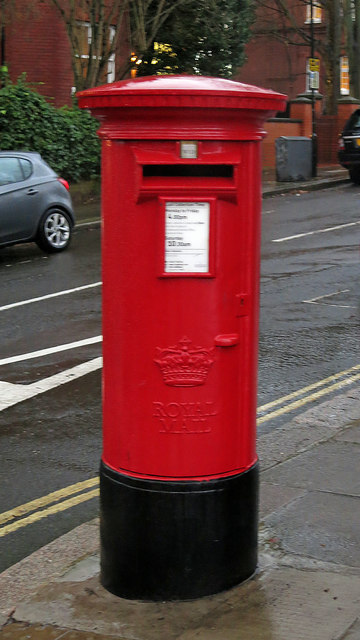
On the same topic, ther was once the king named James VI and I, because he was King of Scotland as James VI (there were lots of Jameses reining in Scotland before), and eventually King of England and Ireland as James I (no Jameses there).
10. Nicholas II had a dragon tattoo on his forearm
I didn't know there was royalty progressive enough to get a sick forearm tattoo:
April 16. Tuesday. I woke up to a beautiful day, the shore was beckoning. The streets and houses in Nagasaki make a wonderfully pleasant impression: everything is perfectly cleaned and looks tidy, it is a pleasure to enter their houses and the Japanese and Japanese women themselves are such cordial and friendly people. We returned to the frigate at 5 o’clock for tea. After dinner, I decided to have a tattoo of a dragon on my right arm, which took exactly seven hours, from 9 pm to 4 am, to complete! It is enough to go through this kind of pleasure once to discourage me from embarking on it again. The dragon turned out quite well. And my hand did not hurt at all!

The illustration looks shady, but that's probably because they tried to enhance it. The quote about from the emperor's own diary so the story checks out. These days he'd get a similar tattoo in half of the time though.
Book of the week
I consume a lot of food-related content, but there is only a handful of writers I am subscribed to, and Jay Rayner is probably one of my favourite. Not a surprise I included his reviews into "Things I read this week" multiple times, even though restaurant reviews are not usually fitting into long-read style posts I am referencing to most of the time.
Surprisingly to me, I never thought of him as a writer of larger genres, and yet Jay Rayner's Last Supper: One meal, a lifetime in the making is one of the most hilarious books I've read this year:
The public bar, spartan and basic, was where the working classes went.
The public bar at the Ship was a constant lock-in. You only got access by knocking on the door. If they liked you, they’d let you in. It was home to a couple of dozen local lads in their late teens and early twenties, with names like Daz and Sha, Ginger and Gino, who ruled the pool table, kept out strangers and dealt dope to each other. I got in because Sandra, the landlady, vouched for me. ‘What we want’, says Daz to me, ‘is 75 per cent local labour at the docks. And a golf course … And forget Europe. I don’t care what currency we have as long as it’s got a picture of the fucking Queen on the back. We don’t want no German emperor on our coins, do we?’ Later, they try to cut up a piece of dope, but nobody has a knife. ‘Bit unusual this,’ Daz tells me. ‘Usually we come armed.’ They try to break it up by biting down on the lump of hash, but their teeth are not up to the job.
I've been to a similar pub recently, right on the border of Cornwall and Dartmoor, and while there was no visible face control, the atmosphere was very telling: from a jukebox machine in the corner to a caged parrot on a shelve.
The book itself has just the right balance of life stories and trade secrets to avoid becoming too niche or too boring, and yet the author even manages to sneak in a few of his favourite recipes.
That being said, I skimmed through some other (more recent) books he wrote, and didn't have the desire to keep reading them.
Maybe one day.
Thank you and see you in a week
(or in a month)!
If you'd like to support the newsletter, please subscribe to the weekly plan. Otherwise you will keep receiving the letters on a monthly cadence – no need to do anything to opt-in.
If you have any questions, or want to suggest a link for the next newsletter, please drop me a message on Twitter or reply to this email.
Cheers! 🍸
Need help with iOS?
I spent a decade on FDA-regulated medical devices and apps with millions of users. Now I help teams ship MVPs, rescue messy architectures, and build the hard bits that don't fit in a sprint.
Learn more →